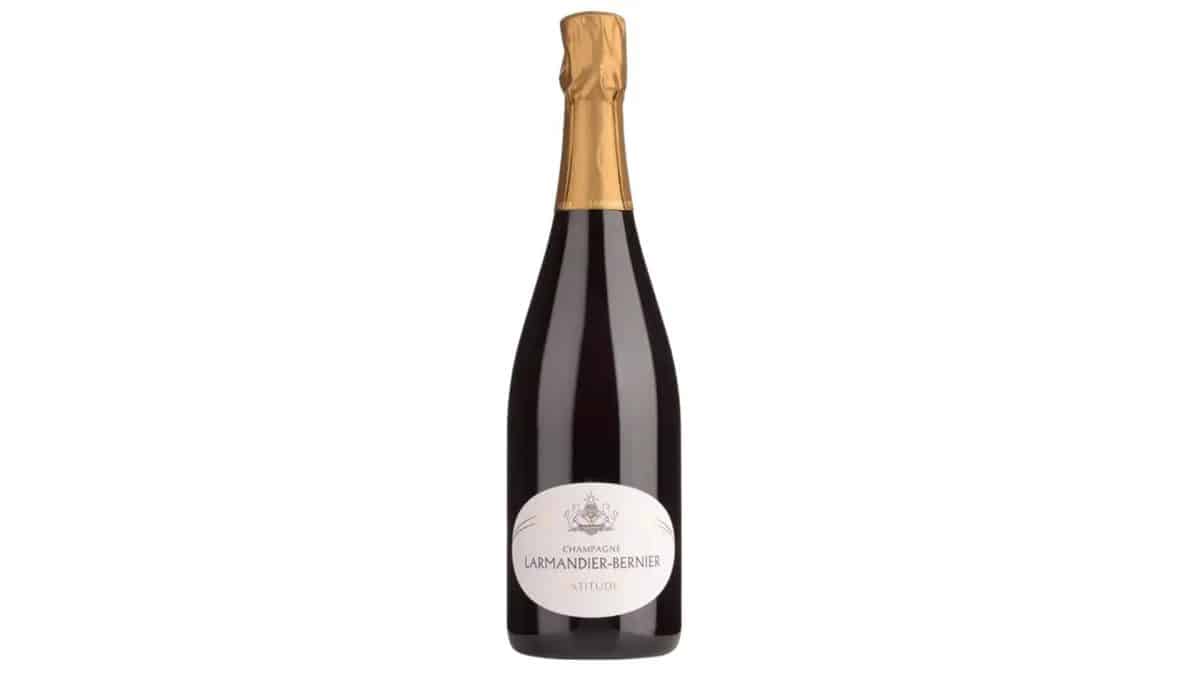
Falling for Champagne (Again): Part 1
How Larmandier-Bernier broke the mold
by Robert Camuto, 10th December 2024

In nearly half a century of drinking wine, and nearly half that time thinking about wine, I’ve had an off-and-on relationship with Champagne.
At times, I did not love it. The prices and access to the great stuff could be obstacles. The strange ways it was consumed were a turnoff: sipped from uptight flutes or spray-blasted over celebratory crowds. Where was the wine in that?
I’ve loved Champagne again for the last dozen years, due to a mix of changes in Champagne (the region), Champagne (the wine) and my own recent Champagne/Champagne experiences.
Five years ago, in a restaurant in the hills outside Verona, I drank my first bottles of Larmandier-Bernier.
I am not a wine reviewer who scores wines in blind tastings. Nor do I have special expertise in sparkling wines. But I love complex and elegant liquids, and those first sips of Larmandier-Bernier’s Extra Brut Blanc de blancs Champagne Latitude were stunning. The wine lit up my palate like the stations of a pinball machine. It was creamy and mouth-filling with a deep yeastiness and a chalky, mineral texture, but at the same time, it flashed energetic freshness as it rolled along the tongue.
After “Latitude” I tasted the Larmandier-Bernier cuvée “Longitude” It was just as compelling, though less rich, with more long-in-the-mouth precision and austere chalkiness.

UAE , January 16, 2025

Pierre Larmandier’s reputation continues on its upward trajectory, and La Maison Larmandier Bernier is now perceived as one of the most significant addresses in Champagne. The ingredients for this success are many: a small grower estate practising biodynamic viticulture, wonderfully old vines, fantastic locations and aspects for the vines, and a non-intervention approach to mirror the respect for nature in the vineyards. Nothing out of the ordinary on the face of it, but when all elements are joined together, the results are a little short of outstanding. The small house today is directed by Pierre and Sophie Larmandier, who took over the direction of the family estate in 1988. In 1992, Pierre began converting the vineyards to organic and then to biodynamic viticulture in 1999.

by Leticia Oliveira
At Home with Larmandier-Bernier
It caught me off guard—that moment. Arthur Larmandier disappears into the dim cellar and returns with a dusty bottle marked 1998. Coincidence? Maybe. Or maybe it was meant to be, it happens to be my birth year.
Then, without ceremony, he performs an age-old motion. A gentle twist. A soft hiss. And suddenly, I’m watching the degorgement of a Champagne for the first time. Yeast sediment escapes with a breath, and there it is: a raw, beautiful glimpse into a craft honed over generations. We sip, we smile, and then
we say our quiet goodbyes to the bottle,the estate, and to Arthur.

I 10 migliori Champagne della Côte des Blancs assaggiati dal Gambero Rosso
Qui, nella zona che stende per una ventina di chilometri da Epernay verso sud, troviamo soprattutto Chardonnay (il 95% delle uve) che arriva alle massime espressioni. I vigneti, seppur a un’altezza piu bassa rispetto alla Montagne de Reims, si trovano ad una discreta altitudine ma è ancora (come nella Montagne) la presenza del gesso, già a pochi cm di profondità, il comune denominatore delle due zone.
Sei sono i Grand Cru di questa zona, molti dei quali sono musica per gli orecchi degli appassionati: Avize, Cramant, Mesnil-Sur-Oger, Oger, Choully e Oiry. Sono invece 7 i Villaggi a Premier Cru.
Le 10 etichette scelte dagli assaggi del Gambero Rosso

Gli Champagne da Chardonnay qui trovano la loro massima espressione, complessità, freschezza, mineralità con rotondità e struttura che variano sensibilmente da villaggio a villaggio.
97 Champagne Blanc de Blancs Grand Cru Vielle Vigne du Levant ‘14
Larmandier-Bernier
Blancs-Coteaux
Da una parcella di vecchie vigne di chardonnay allevate in biologico e poste sul lato est di Cramant, Pierre e Sophie Larmandier ottengono questo capolavoro che sosta 108 mesi sui lieviti: al naso ammaliante di spezie orientali e buccia di chinotto segue un sorso cremoso, di grande finezza, con un riverbero salino che non se ne va più via.

